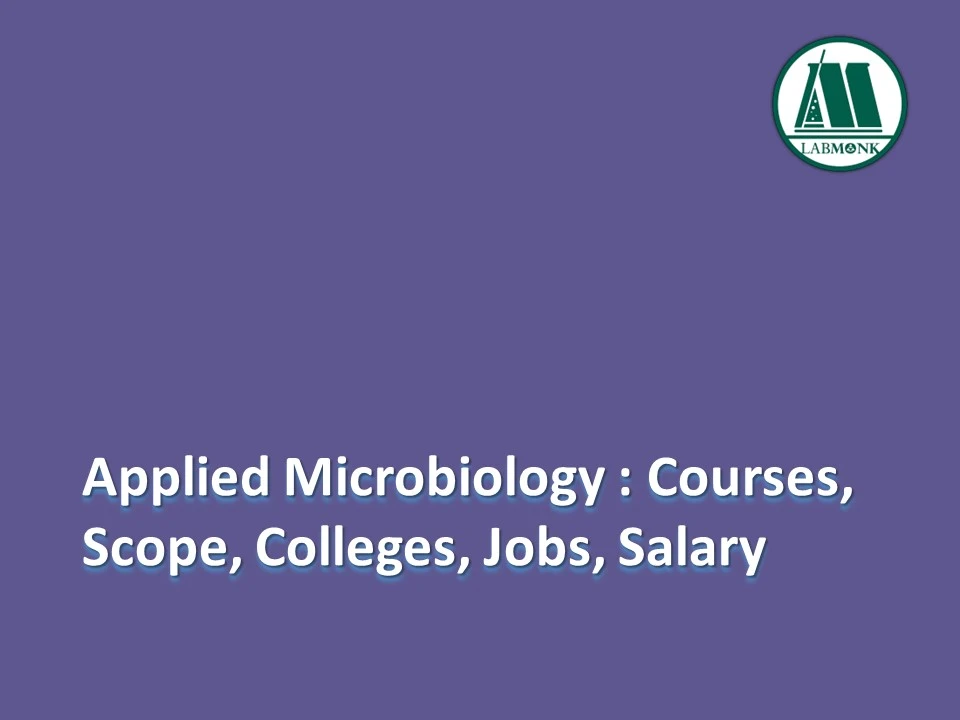Table of Contents
Applied Microbiology : Courses, Scope, Colleges, Jobs, Salary
Applied microbiology is a branch of science involving various use of microorganisms in the science sector for producing several products that benefit human beings, like medicines, enzymes, vaccines, biotechnologically engineered products, antibiotics, and fermentation products. Primarily, this field involves the study of microorganisms for solving issues about public health, agriculture and the environment.
An applied microbiologist works to find cures for various diseases, comes up with some efficient and harmless pesticides, and protects the environment from various damages.
What is the scope of applied microbiology?
An applied microbiologist must obtain a bachelor’s degree in applied microbiology or microbiology for any entry-level job. Still, a master’s degree or doctorate is required for research and teaching. In many cases, a few years of laboratory experience is required to pursue a PhD in this subject. Besides science classes and laboratory experience, students must have a good understanding of statistics and mathematics to carry out the data analysis required in this field.
MSc in applied microbiology
It is a post-graduate microbiology course focusing on advanced studies in Microbiology, Food science, molecular biology and independent research work. This program also provides various research fields such as Industrial microbiology, food microbiology, Fermentation technology, food safety and quality management. The total duration of this course is about two years, and it is job-oriented, which opens up various scopes on completion.
Eligibility
The candidate should pass B.Sc with Hons with any of the following subjects: Botany, Zoology, Industrial Microbiology, Environmental science with minimum 50% marks in aggregate. Some reputed colleges conduct entrance examinations for getting admission in MSc Applied Microbiology.
If you are a student or a researcher, you can visit us at labmonk.com. You can search practical procedures of your subject.
Click the page numbers below to read more on this topic.

